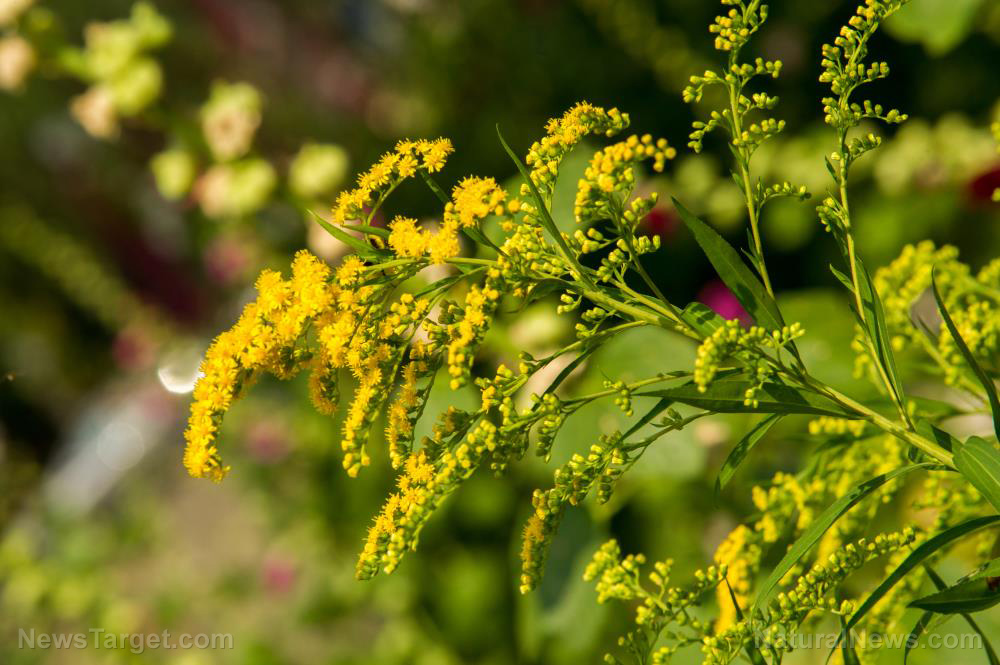These 5 flowering plants will attract good bugs to your garden

(Natural News) If you want your home garden to thrive, learn how to naturally attract beneficial bugs. One way to do this is by planting bug-friendly flowers. (h/t to EcoWatch.com)
Create the right habitat for beneficial insects
Not all insects are bad for your crops. While some insects feed on and destroy your plants, other bugs will feed on the bad bugs.
These bug-eating insects will protect your crops and planting the right kinds of flowers to attract them is the key. To ensure that your garden has a lot of carnivorous bugs that will keep the herbivores from ruining your crops, create the right habitat for them.
Provide food and shelter for carnivorous bugs by planting beautiful flowering plants that offer both. The good bugs will make their home in the flowering plants.
Time your planting right so the carnivores are in full force when the herbivores arrive. Carnivores like hoverflies, lacewings, ladybugs, parasitic wasps, pirate bugs, and praying mantises will get rid of pests like aphids, cabbage worms, leafcutter ants, squash vine borers, and whiteflies.
Other insects will feed on nectar from the flowers at various stages of their life cycle. The beneficial bugs may also feed on nectar when their prey isn’t available in your garden.
Listed below are five flowering plants that provide habitats for your tiny garden helpers. (Related: A simple guide to creating a pollinator-friendly garden.)
Coneflower
Coneflower (Echinacea) plants have two-foot-tall flower stalks that suit a perennial border adjacent to your vegetable garden.
Sponsored solution from the Health Ranger Store: The Big Berkey water filter removes almost 100% of all contaminants using only the power of gravity (no electricity needed, works completely off-grid). Widely consider the ultimate "survival" water filter, the Big Berkey is made of stainless steel and has been laboratory verified for high-efficiency removal of heavy metals by CWC Labs, with tests personally conducted by Mike Adams. Explore more here.
Coneflowers attract butterflies that feed on the nectar from its flowers, but the plant’s unique purple blossoms also attract various smaller, beneficial insects.
Goldenrod
Goldenrods are known for their loose yellow blossoms, which are an eye-catching late-season addition to any home garden. While the other plants included in this list usually blossom during spring and summer, goldenrod tends to bloom late in summer all the way into fall.
Pair the other flowers on this list with goldenrod to ensure that the beneficial bugs stay in your garden throughout the year.
Marigold
Marigolds are a small annual plant with orange- and yellow flowers. Incorporate marigolds into your vegetable beds to beautify your garden and keep out pests.
Marigolds don’t just repel above-ground pests. Their roots are also toxic to root-knot nematodes. This common pest attacks your precious vegetables from below.
Sweet alyssum
Sweet alyssum has honey-scented white flowers that will completely cover the plant. A ground-hugging annual, sweet alyssum flowers will blossom for several months during the growing season.
This small and low-growing plant acts as a ground cover around taller vegetables like chard and kale. As a bonus, sweet alyssum may seed itself. After you plant it once in your home garden, it will sprout again every year.
Yarrow
Yarrow is a perennial flower that bears red, yellow, and white blossoms. The flowers grow from a spreading mat of lacy foliage that exudes a lovely herbal fragrance when crushed.
Yarrow attracts good insects like hoverflies and ladybugs. The plant also attracts butterflies that feed on the large blossoms full of nectar.
Additional tips that will attract beneficial bugs to your home garden
Planting dill and gazania also attracts ladybugs while nasturtium attracts ground beetles and spiders.
Clover will help attract pollinators like bees. Grow native flowers in your garden to attract more beneficial bugs than cultivars.
Finally, don’t use harmful pesticides that may kill the good bugs that you need in your home garden.
Sources include:


